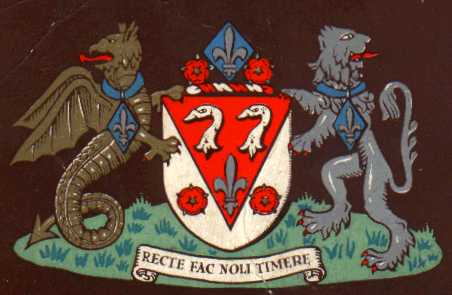 Lords
Saints
Places
People
Contact
Lords
Saints
Places
People
Contact
Howard Harker WWI Ace.
Howard Harker was born in Prestwich 1891, the son of an architect, John Dent Harker (1860–1933). John Dent Harker was in turn the son of Thomas Harker Esq JP, and Director of Rylands and Sons Ltd.
John designed schools, dwellings, and churches in Lancashire, Cheshire, and Derbyshire, monuments of his design are to be seen in this district in the Pavilion of the Victoria Pier, Blackpool; the Hipodrome (formerly Empire Music Hall), Blackpool; the Public Hall, St. Anne’s; and the new Pier entrance and offices at St. Annes.
After attending school in St Annes, Howard graduated from Manchester University. He got a job at the Royal Aircraft Factory at Farnborough, and in 1915 he made a memorable arrival at Hendon Aerodrome in a new B.E.2c biplane flown by Frank Goodden, who treated the assembled crowd to an impromptu display of aerial acrobatics before landing.
Harker was commissioned in the Royal Flying Corps in April 1916 and was appointed a flying officer by July of that year.
Harker was posted No. 57 Squadron, a bomber and reconnaissance unit in France. He gained his first victory, while flying a two-seat pusher biplane (F.E.2d), in March 1917, by driving down 'out of control' an Albatros D.II east of Lens.
He was appointed a flight commander with the rank of acting-captain in April 1917. In May his squadron was re-equipped with the DH.4. The squadron joined the 27th Wing, part of the V Brigade Royal Flying Corps, to support the British Army at the Ypres Offensive.and in June he destroyed an Albatros D.III south of Houthulst.
He was promoted to the rank of lieutenant on 1 July 1917. His remaining three victories were during July & August that year.
On 26 September 1917 he was awarded the Military Cross. His citation read:
Second Lieutenant (Temporary Captain) Howard Redmayne Harker, Royal Flying Corps (Special Reserve)
"For conspicuous gallantry and devotion to duty. For nearly, a year he has carried out extremely valuable work in taking aeroplane photographs and leading bombing raids far behind the enemy lines, often in the face of great opposition and trying weather conditions. On a recent occasion while returning from a successful bombing raid his formation was attacked by more than twice its number, but by his fine offensive spirit and skilful leadership, the enemy were dispersed. He has consistently set a splendid example to his brother officers."
Harker was appointed an acting-major on 1 October 1918. His final posting was to the No. 2 School of Navigation and Bomb Dropping at RAF Andover, Wiltshire. He died from pneumonia on 27 February 1919 at the Officers' Military Hospital at Tidworth, and is buried in the Southern Cemetery, Manchester.